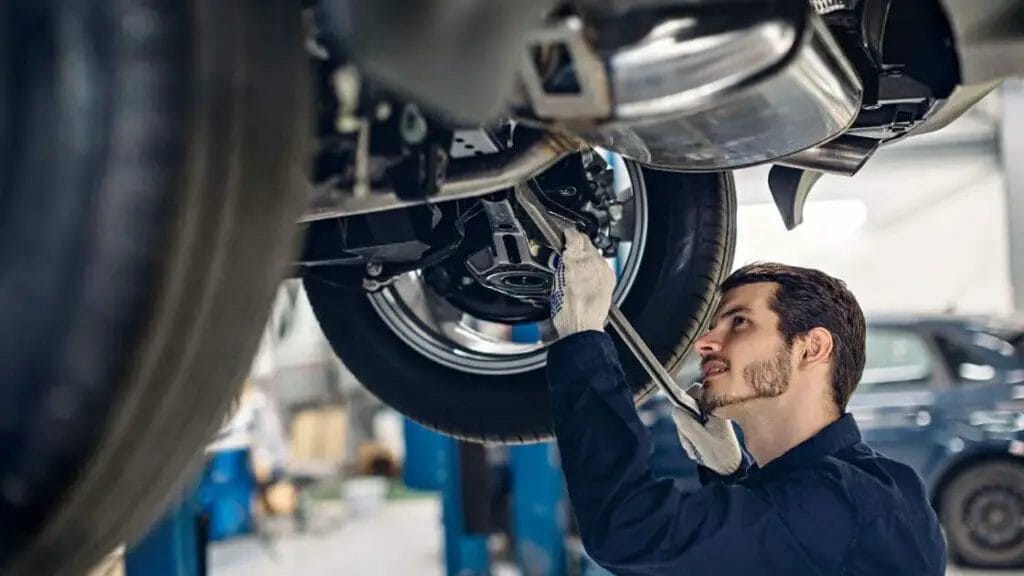Noise pollution can put so much strain on any individual’s sanity; there’s only so much one can take before breaking due to exhaustion. So, putting up with annoying rubbish noise every time you turn your Honda CR-V is a big no.

Don’t worry, we are here to help.
In this article, we will explore the different reasons behind this noise and provide you with practical tips on how to fix it. Whether it’s a clunking sound, a grinding noise, or a squeak, we’ve got you covered.
Our team of experts has compiled a comprehensive guide to help you diagnose the problem and find the best solution for your specific CR-V model.
So, if you’re ready to bid farewell to the rubbish noise and enjoy smooth and silent turns, keep reading and take control of your driving experience.

Understanding the issue: What causes rubbish noise when turning your Honda CR-V?
When it comes to rubbish noise when turning your Honda CR-V, there can be several potential causes.
- Worn-out suspension components. Over time, the bushings, ball joints, and control arms can deteriorate, leading to noise when turning.
- Compromised power steering system. If the power steering fluid is low or contaminated, it can result in noise during turns.
- Issues with the CV joints or wheel bearings can also cause rubbish noise.
Understanding the root cause is essential for finding the right solution to fix the problem.
To determine the exact cause of the rubbish noise, it is crucial to identify the type of noise you’re experiencing.
Is it a clunking sound, a grinding noise, or a squeak? Each type of noise can indicate a specific problem.
Clunking sounds may point to worn-out suspension components while grinding noises might be a sign of a problem with the CV joints or wheel bearings. Squeaking noises, on the other hand, often indicate issues with the power steering system.
By paying attention to the type of noise, you can narrow down the potential causes and proceed with the appropriate solution.
Identifying the source of the noise can be challenging, especially if you’re not familiar with the inner workings of your Honda CR-V.
However, there are a few methods you can use to pinpoint the problem area.
One option is to have a trusted mechanic or technician inspect your vehicle. They have the expertise and tools required to diagnose the issue accurately.
Another option is to perform a visual inspection yourself. Look for any signs of wear or damage on the suspension components, CV joints, and wheel bearings.
Lastly, check the power steering fluid level and quality. By narrowing down the source of the noise, you can proceed with the necessary repairs or replacements.
DIY solutions to fix rubbish noise when turning
If you’re comfortable working on your Honda CR-V, there are several DIY solutions you can try to fix the rubbish noise when turning.
One common issue is worn-out suspension components, such as bushings, ball joints, and control arms. These parts can wear out over time due to normal wear and tear or harsh driving conditions.
Replacing these components can often eliminate the noise and restore the smoothness of your turns.
However, it’s essential to choose high-quality replacement parts to ensure long-lasting results.
Replacing worn-out suspension components requires some mechanical knowledge and the right tools.
- Start by safely lifting the vehicle and securing it on jack stands.
- Remove the old components by following the manufacturer’s instructions or referring to a repair manual.
- Once the old parts are removed, install the new ones using the correct torque specifications. It’s crucial to follow the proper installation procedures to ensure optimal performance and safety.
- After the replacement, take your CR-V for a test drive to verify that the rubbish noise has been eliminated.
Another potential DIY solution is to check and replace worn-out CV joints or wheel bearings. These components can wear out over time and cause noise when turning.
- Inspect the CV joints for any signs of damage, such as torn boots or excessive play. If the CV joints are faulty, they will need to be replaced.
- Similarly, inspect the wheel bearings for wear or damage. If there is any indication of a problem, replace the affected wheel bearing.
These repairs can be more complex and require specialized tools, so it’s essential to assess your comfort level and consider seeking professional help if needed.
Checking and replacing worn-out components
When it comes to fixing rubbish noise when turning your Honda CR-V, checking and replacing worn-out components is often the most effective solution.
As mentioned earlier, worn-out suspension components, CV joints, and wheel bearings can all contribute to the noise. By inspecting these parts and replacing them if necessary, you can restore the smoothness and silence of your turns.
Start by visually inspecting them for any signs of wear or damage. Look for cracked or worn bushings, loose ball joints, or bent control arms.
If you notice any issues, these components will likely need to be replaced. It’s crucial to choose high-quality replacement parts to ensure optimal performance and longevity.
Checking the CV joints is another important step.
Inspect the CV joint boots for any tears or cracks. If the rubber boot is damaged, it can allow dirt and moisture to enter the joint, leading to premature wear and noise.
Additionally, check for excessive play or clicking sounds when rotating the wheels. These are signs of a faulty CV joint that needs to be replaced.
Wheel bearings are also prone to wear and can cause noise when turning.
To check the condition of the wheel bearings, raise the vehicle and grasp the tire at the 12 o’clock and 6 o’clock positions. Try to wiggle the tire back and forth.
If there is any play or looseness, it indicates a worn-out wheel bearing that needs replacement.
Replacing these worn-out components can be a challenging task, especially for those with limited mechanical experience.
If you’re not confident in your abilities, it’s best to seek the help of a professional mechanic who can handle the job safely and efficiently.
They have the expertise and tools required to diagnose and replace faulty components, ensuring a smooth and quiet driving experience.

Professional solutions for fixing rubbish noise
While some DIY solutions can effectively fix the noise from your Honda CR-V, there are instances where professional intervention is necessary.
Complex issues or those requiring specialized tools and knowledge are best left to professionals who can diagnose and fix the problem accurately.
If you’ve tried DIY solutions and the rubbish noise persists, it’s time to consult a professional mechanic. They will have the expertise to diagnose the issue using advanced diagnostic equipment.
Whether it’s a problem with the power steering system, CV joints, or wheel bearings, a professional can accurately identify the source of the noise and recommend the appropriate repairs or replacements.
Professional solutions may involve more extensive repairs or replacements that require specialized tools and equipment.
For example, if the power steering system is the culprit, a professional mechanic can perform a thorough inspection and flush the system to remove any contaminants.
They can also diagnose and fix issues with the CV joints or wheel bearings, ensuring a quiet and smooth driving experience.
Preventive maintenance to avoid rubbish noise in the future
To avoid future rubbish noise when turning your Honda CR-V, it’s essential to prioritize preventive maintenance.
Regularly inspect and maintain the suspension components, power steering system, CV joints, and wheel bearings to ensure they are in good condition.
Start by following the manufacturer’s recommended maintenance schedule. This includes regular oil changes, fluid checks, and filter replacements.
By staying on top of these routine maintenance tasks, you can prevent premature wear and damage to critical components.
At the same time, pay attention to any signs of trouble. If you notice unusual noises, vibrations, or changes in steering performance, address them promptly.
Ignoring these warning signs can lead to more extensive and costly repairs down the line.
Proper tire maintenance is also crucial for avoiding rubbish noise. Ensure your tires are properly inflated according to the manufacturer’s recommendations. Uneven tire wear or improper alignment can contribute to noise when turning.
Regularly rotate and balance your tires to promote even wear and prolong their lifespan.
Tips for maintaining your Honda CR-V’s steering system
The steering system is a vital component of your Honda CR-V that requires regular maintenance to prevent rubbish noise. Here are some tips to help you maintain your vehicle’s steering system:
- Check the power steering fluid regularly and top it up if necessary. Low or contaminated power steering fluid can lead to noise and reduced performance.
- If you notice any fluid leaks around the power steering system, have them repaired immediately. Leaks can cause damage to the system and lead to noise and steering issues.
- Avoid extreme driving conditions that can put excessive strain on the steering system. This includes aggressive cornering, hitting potholes or curbs, and overloading the vehicle.
- Keep an eye on the condition of the steering belts and hoses. Replace any worn or damaged components to ensure the proper functioning of the steering system.
- If you experience any changes in steering performance, such as difficulty turning or excessive play, have your vehicle inspected by a professional mechanic.